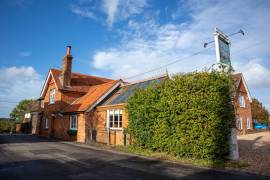Legal advice: Identity cards and the pub trade
How the national identity card scheme can benefit the licensed trade.
By David Clifton and Kathryn Dowsett of thePublican.com's team of legal experts from London solicitors Joelson Wilson.
On April 26 the Home Office published the Draft ID Cards Bill, which intends to establish a secure national compulsory ID cards scheme. You may have read on this site the various concerns on this subject being expressed by people in your industry, including the perceived negative impact on civil liberties.
The Home Office, however, is of the view that there is wide- spread support for national ID cards, with a recent MORI poll showing that 80 per cent of those questioned backed such a scheme.
The scheme is aimed at tackling the type of serious, organised crime that depends on perpetrators being able to use false identities, for example:
- terrorism
- drug trafficking
- money laundering
- fraud through ID theft
- illegal working
- unlawful immigration.
But there are many who believe that, if fully implemented, the national ID card scheme will have a beneficial impact for the pub industry. For example, anyone suspected of being underage could be asked to provide their ID card as a watertight proof of identity. This assumes greater relevance in view of the recent announcement by the Home Office that next month it is to start an eight-week "name and shame" operation against pubs and clubs which allow underage drinking.
The draft bill sets out the legal framework for the ID card scheme, which will be introduced incrementally. It envisages that cards would include basic information, a digital photograph and biometric information (possibly facial recognition, iris images or fingerprints). The cards would be linked to a national identity register.
The government expects that 80 per cent of the economically active population will have an ID card by 2013. Details of each holder's name, age and unique number will be on the card and available for easy inspection by barstaff and door supervisors.
Two aspects of the draft bill that might benefit the pub industry are:
- it is proposed to give 16-year-olds their first card free
- the cards will indicate whether the holder has a right to work in this country - which employers are likely to welcome in view of the new rules against employing illegal workers introduced on May 1(as reported on this page a few weeks ago).
The draft bill does not propose that, at least in the initial implementation of any legislation, it will be compulsory to carry an ID card. Such a requirement could only be introduced following a vote in both Houses of Parliament after detailed scrutiny.
The home secretary, David Blunkett, is reported to have overcome cabinet opposition to the draft bill and to have said that he wants new legislation in force before the next general election.
- The introduction of the compulsory ID card is tied in with the introduction of biometric passports. The first enrolment pilot for biometric passports opened to the public in London on April 26 and trials are also taking place in Leicester, Newcastle and Glasgow. Additionally a mobile unit will visit other locations across the country.
Any UK resident aged 18 or over can volunteer to take part in the trial. If you are interested e-mail trial@mori.com or apply via www.mori.com.













